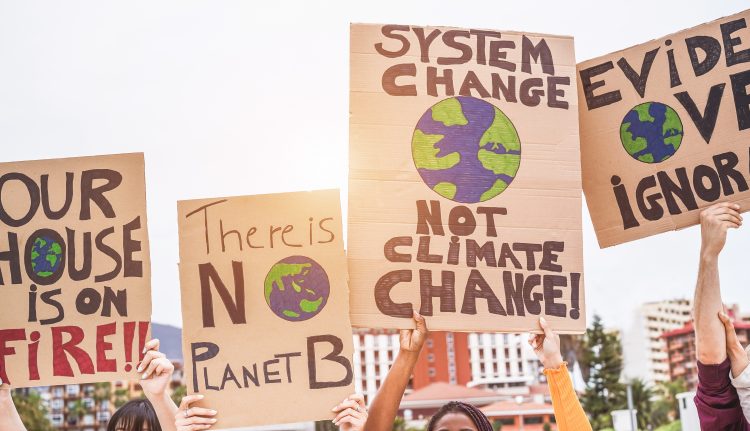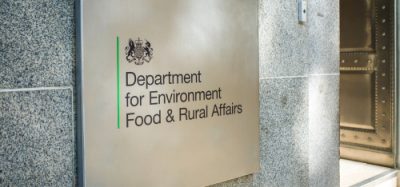Collaboration is critical: 2022 must be the year to prioritise partnerships
- Like
- Digg
- Del
- Tumblr
- VKontakte
- Buffer
- Love This
- Odnoklassniki
- Meneame
- Blogger
- Amazon
- Yahoo Mail
- Gmail
- AOL
- Newsvine
- HackerNews
- Evernote
- MySpace
- Mail.ru
- Viadeo
- Line
- Comments
- Yummly
- SMS
- Viber
- Telegram
- Subscribe
- Skype
- Facebook Messenger
- Kakao
- LiveJournal
- Yammer
- Edgar
- Fintel
- Mix
- Instapaper
- Copy Link
Posted: 1 February 2022 | Wai-Chan Chan | No comments yet
Wai-Chan Chan, Managing Director of The Consumer Goods Forum, discusses why collaboration within the food industry is critical if we are to halt the oncoming tide of climate change.


As we race towards the planet’s best last chance to halt runaway climate change and the 2030 deadline for the Sustainable Development Goals, time to ensure a greener planet and thriving communities is short. Almost half the world’s 2.2 billion children are already at extremely high risk from the impacts of the climate crisis. Without immediate action, people and places around the world will suffer long term damage. The World Economic Forum’s global survey of risks, published recently, shows that climate change, growing social divides and an uneven pandemic recovery are the most pressing concerns facing world leaders in business, government, and civil society.
If there is a silver lining, it is that the intertwined relationship between business, society and the environment is clearer than ever. Businesses cannot thrive unless the communities around them are thriving. This is a fundamental truth that every boardroom must embrace. And it must act as a catalyst for far greater cooperation between companies. To achieve what we as a global business community need to achieve, at the speed required, businesses must put collaboration over competition.
The pandemic response has already demonstrated what businesses can collectively achieve when faced with monumental challenges. During the worst stages of the pandemic, we saw hugely impactful collaborations between producers of personal protective equipment, medical suppliers, vaccine developers and supermarkets. Now we need to a similar mindset to avert a climate disaster and improve livelihoods for people in difficult circumstances.
This week, the World Economic Forum was due to convene global leaders in Davos to discuss how to tackle urgent environmental and societal challenges. The pandemic has delayed the in-person event until summer, with the Forum instead hosting a series of virtual discussions between 17 – 21 January. As the Executive Chairman of the World Economic Forum commented last week, to address the challenges ahead, “leaders will need to adopt new models, look long term, renew cooperation and act systemically.” We need to move from resilience to reinvention if we are to build businesses that grow responsibly in this new era, and we need to collaborate.


2021 brought with it COP26 and important progress, but 2022 is another crucial year in the fight against climate change
This ethos of collaboration is core to how we operate at The Consumer Goods Forum (CGF). We are a CEO-led organisation where businesses put competition aside to find solutions that have tangible positive effects on people, planet and business. More than 55 of the world’s top CEOs sit on our Board of Directors, and we are committed to making change happen through co-ordination, open dialogue and meaningful action on the ground.
Every business has its own pressures and priorities, and generating common agreement isn’t always simple. Collaboration sometimes involves compromise and trade-offs. At the same time, achieving tough goals like getting large-scale businesses with hundreds of thousands of employees to net zero emissions is a huge undertaking: it cannot happen overnight. But we know we are stronger together – collectively striving to ensure we answer the needs of customers, partners and the environment.
Such is the scale of the climate crisis that businesses need to see it as a pre-competitive problem that can only be solved through industry-wide and cross-sector collaborations. Businesses can’t be in it for themselves; they must work together to find faster solutions that benefit people and planet. Those who go it alone are setting themselves up for a journey to failure.
At the CGF, I have seen first-hand the benefits of collaboration to address today’s leading challenges. For example, in helping to tackle deforestation, our Forest Positive Coalition of Action launched its first Annual Report last year, bringing together seven retailers and 13 manufacturers to publicly report against new performance metrics to end commodity-driven deforestation – a major milestone to increase collective transparency. In addition, 41 members of our Plastic Waste Coalition of Action, representing more than 10 percent of the global plastic packaging market, have come together to agree a series of best practice rules for plastic design, production and recycling – helping to ensure it follows the principles of the circular economy.
Although many businesses are making great strides to accelerate positive action, we can certainly all go much further. And while COP26 was a hugely meaningful milestone, 2022 must be the year for every business to deliver real action and impact. Businesses cannot turn up their volume around decarbonisation efforts and then fade away. At CGF, we know we must keep pushing ourselves, and our members, to do more. As part of this, CGF is now an official Accelerator of the UN’s Race to Zero campaign, to encourage faster progress on carbon reduction across our global membership.
A transition to a greener, healthier, and more resilient future is a business and moral necessity, not an option. While the scale of the challenges we face are unprecedented, they are also shared: so our approaches to tackling them must also be shared.
Collaboration, coordination, and open conversation is the only way we can move forward. The time is now to really share thinking and resources to drive change and deliver a positive impact.
Wai-Chan Chan
Wai-Chan Chan is the Managing Director of The Consumer Goods Forum (CGF) and brings to the role more than 25 years of retail and FMCG experience globally, with a particular focus on Asia and Greater China.
Prior to joining the CGF, he was a senior partner at various consulting firms including McKinsey & Company and OC&C Strategy Consultants, where he served clients primarily in the grocery, health and beauty sectors on a broad range of strategic, operational and organisational issues. Wai-Chan also served as the North Asia Regional Director for retailer Dairy Farm where he ran the Wellcome, 7-Eleven and Mannings banners. He has also served as a non-executive director, most recently on the board of Bellamy’s Organic, a leading infant nutrition supplier based in Australia.
Wai-Chan holds a PhD in Materials Science from the University of Cambridge, an MBA from the Harvard Graduate School of Business Administration where he was a Fulbright Scholar and a British American Chamber of Commerce Scholar, and a BSc (Hons) from Imperial College.









